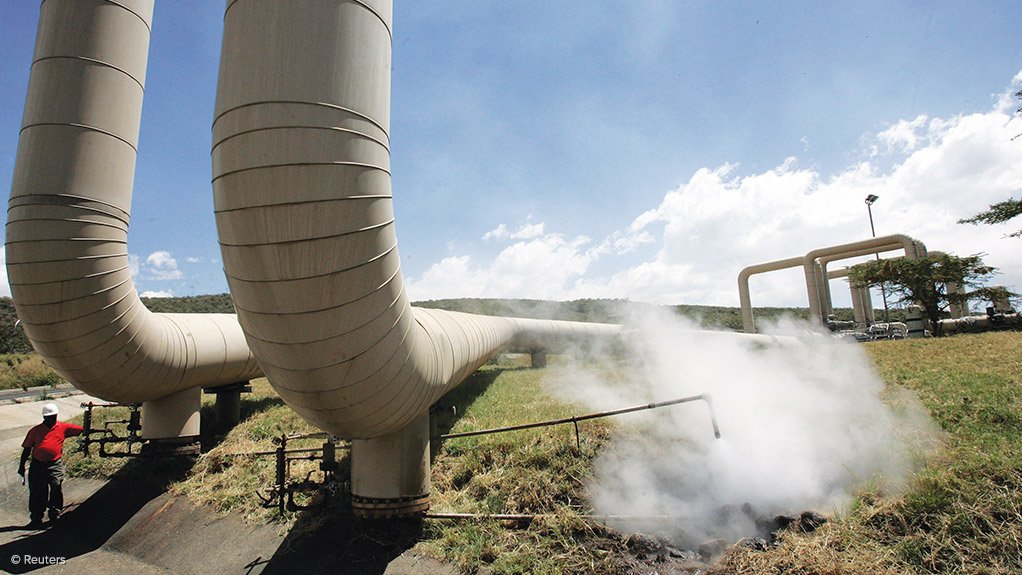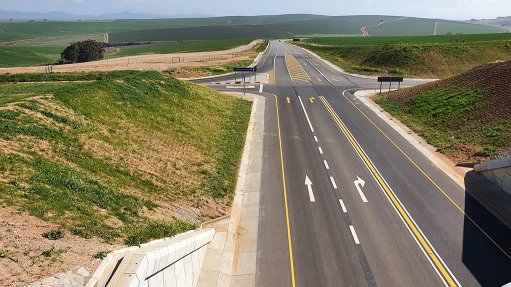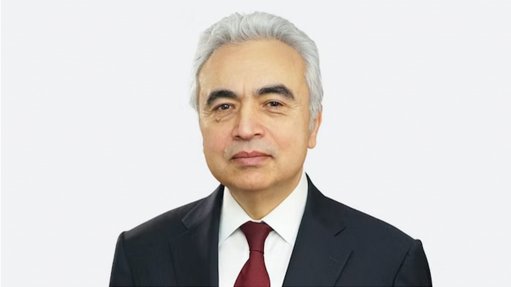Kenya’s geothermal aspirations face big financing hurdle


FUNDING WORRIES Financial constraints are said to already be having an impact on geothermal investments
Photo by Reuters
The quest by Kenya to invest in geothermal power projects to address perennial power challenges now stands on the precipice, owing to a financing crunch.
East Africa’s biggest economy has identified geothermal energy as the solution for a protracted energy crisis that has slowed down economic growth and left over three-quarters of the population without access to electricity.
Now it is dawning on the authorities that the target to generate at least 5 000 MW from geothermal by 2030 might not be met, owing to the colossal amounts required.
Government estimates indicate that Kenya requires a staggering $20-billion over the next 17 years for this dream to become reality.
“Kenya underestimated the magnitude of investments required in geothermal power. Now government is starting to feel the pressure in terms of financing,” states Patrick Omwenga, an energy expert.
That financial constraints are already having an impact on geothermal investments is evident from the slow pace of proposed projects in the Rift Valley, the epicentre of geothermal steam.
The future of three proposed projects with a combined capacity of 3 320 MW, which are estimated to cost $9.1-million, now hangs in the balance owing to financial constraints. These are Kenya Electricity Generation Company’s (KenGen’s) 920 MW project in Olkaria and the Bogoria-Silali and Menengai projects, being developed by the Geothermal Development Company (GDC).
The delays have been caused by limited government budgetary allocations, KenGen’s huge debts, a lack of funds at the GDC and lukewarm interest among private investors.
In the 2013/14 Budget, the Kenya government allocated a paltry $141.5-million to geothermal projects, a drop in the ocean compared with the required resources.
Although financing is emerging as a major headache for Kenya, GDC corporate affairs manager Paul Ngugi argues that money is not the main problem. “The issue is mainly whether the projects are bankable. The bankability of a project is a prerequisite for financing by financial institutions, whose main criteria for assessing financial applications are technical, financial, economic and legal soundness and appropriate risks mitigation,” he says.
He adds that, apart from government financing, other sources of funds include multilateral development banks, bilateral development agencies, special-purpose finance, commercial banks and private equity, besides others.
According to the National Energy Policy, which has yet to be enacted into law, demand for electricity in Kenya has shown an upward trend since 2004 owing to accele- rated economic growth. Peak demand increased from 899 MW in 2004 to 1 194 MW in 2011. The peak load is projected to grow to 2 511 MW by 2015 and 15 026 MW by 2030. To meet this demand, the projected installed capacity should increase gradually to 19 199 MW by 2030.
To meet the projected demand, the system expansion indicates that the total installed capacity will be obtained from geothermal (26%), nuclear (19%), coal plants (13%), hydro plants (5%), thermal plants (9%), gas turbines (11%) and wind plants (9%), while imports will provide up to 8%.
Meeting the geothermal goal now looks unlikely, particularly after KenGen raised massive debts to finance the 280 MW Olkaria project. The company borrowed $700-million from various international financial institutions for the plant, whose total cost is $1.2-billion (KSh102-billion).
The huge debt has left the company dangerously exposed, which makes it impossible for it to absorb more debt.
The realisation that geothermal projects in Kenya hang in the balance has forced the authorities to resort to private investors. Both KenGen and the GDC are seeking private investors to develop the 560 MW and 800 MW geothermal power plants at Olkaria and Menengai fields respectively.
However, private investors have demonstrated indifference towards the overtures, largely because of the enormity of the investments and the time it would take to recoup the investments.
Any interested private investor must have at least $300-million in net assets, demon- strate it has raised funding amounting to at least $100-million for an infrastructure project and must have a minimum of five years’ experience in developing geothermal power plants.
“Private-sector companies want to invest in projects where return on investment is fast – that is why they prefer thermal plants to geothermal,” explains Ngugi.
The apathy by private investors has been exacerbated by the fact that the Kenya government has ruled out offering them sovereign guarantees, leaving them to seek private insurance or guarantees from the World Bank.
Kenya is endowed with vast geothermal resources within the Rift Valley with an estimated potential of between 7 000 MW and 10 000 MW, but only about 300 MW has been exploited to date.
Comments
Press Office
Announcements
What's On
Subscribe to improve your user experience...
Option 1 (equivalent of R125 a month):
Receive a weekly copy of Creamer Media's Engineering News & Mining Weekly magazine
(print copy for those in South Africa and e-magazine for those outside of South Africa)
Receive daily email newsletters
Access to full search results
Access archive of magazine back copies
Access to Projects in Progress
Access to ONE Research Report of your choice in PDF format
Option 2 (equivalent of R375 a month):
All benefits from Option 1
PLUS
Access to Creamer Media's Research Channel Africa for ALL Research Reports, in PDF format, on various industrial and mining sectors
including Electricity; Water; Energy Transition; Hydrogen; Roads, Rail and Ports; Coal; Gold; Platinum; Battery Metals; etc.
Already a subscriber?
Forgotten your password?
Receive weekly copy of Creamer Media's Engineering News & Mining Weekly magazine (print copy for those in South Africa and e-magazine for those outside of South Africa)
➕
Recieve daily email newsletters
➕
Access to full search results
➕
Access archive of magazine back copies
➕
Access to Projects in Progress
➕
Access to ONE Research Report of your choice in PDF format
RESEARCH CHANNEL AFRICA
R4500 (equivalent of R375 a month)
SUBSCRIBEAll benefits from Option 1
➕
Access to Creamer Media's Research Channel Africa for ALL Research Reports on various industrial and mining sectors, in PDF format, including on:
Electricity
➕
Water
➕
Energy Transition
➕
Hydrogen
➕
Roads, Rail and Ports
➕
Coal
➕
Gold
➕
Platinum
➕
Battery Metals
➕
etc.
Receive all benefits from Option 1 or Option 2 delivered to numerous people at your company
➕
Multiple User names and Passwords for simultaneous log-ins
➕
Intranet integration access to all in your organisation



















